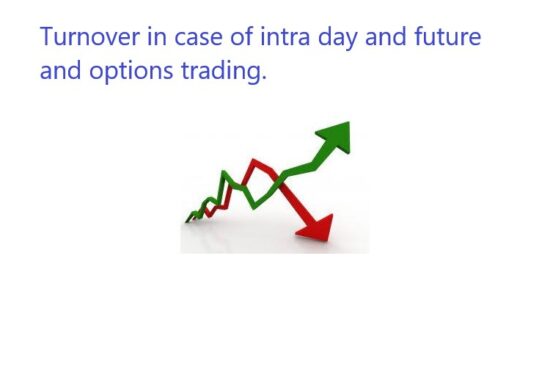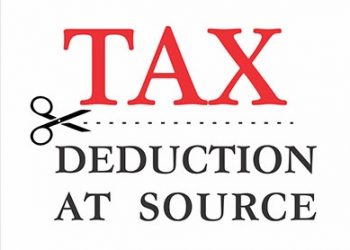Definition of turnover in case of speculative transaction and derivatives, future and options transaction has been defined in para 5.10 of Guidance Note on Tax Audit under Section 44AB of the Income-tax Act, 1961 (Revised 2023). Relevant extract of definition is as under:
The turnover or gross receipts in respect of transactions in shares, securities and derivatives may be determined in the following manner:
(a) Speculative transaction: A speculative transaction means a transaction in which a contract for the purchase or sale of any commodity, including stocks and shares, is periodically or ultimately settled otherwise than by the actual delivery or transfer of the commodity or scrips. Thus, in a speculative transaction, the contract for sale or purchase which is entered into is not completed by giving or receiving delivery so as to result in the sale as per value of contract note. The contract is settled otherwise and squared up by paying out the difference which may be positive or negative. As such, in such a transaction, the difference amount is ‘turnover’. In the case of an assessee undertaking speculative transactions, there can be both positive and negative differences arising from settlement of various such contracts during the year. Each transaction resulting into whether a positive or negative difference is an independent transaction.
Further, amount paid on account of negative difference is not related to the amount received on account of positive difference. In such transactions, though the contract notes are issued for full value of the purchased or sold asset, the entries in the books of account are made only for the differences. Accordingly, the aggregate of both positive and negative differences is to be considered as the turnover of such transactions for determining the liability to audit vide section 44AB.
Speculative transaction includes intra day transaction in shares.
(b) Derivatives, futures and options: Such transactions are completed without actual delivery of shares or securities or commodities etc. These are squared up by receipts/payments of differences. The contract notes are issued for the full value of the underlined shares or securities or commodities etc. purchased or sold but entries in the books of account are made only for the differences. The transactions may be squared up any time on or before the striking date. The buyer of the option pays the premia. The turnover in such types of transactions is to be determined as follows (This is only and only for the purpose of computing ‘turnover’ for tax audit):
(i) The total of favourable and unfavourable differences in case of squared off transactions shall be taken as turnover.
(ii) Premium received on sale of options is also to be included in turnover. However, where the premium received is included for determining net profit for transactions, then such net profit should not be separately included.
(iii) In respect of any reverse trades entered, the difference thereon, should also form part of the turnover.
(iv) In case of an open position as at the end of the financial year (i.e., trades which are not squared off during the same financial year), the turnover arising from the said transaction should be considered in the financial year when the transaction has been actually squared off.
(v) In case of delivery based settlement in a derivatives transaction, the difference between the trade price and the settlement price shall be considered as turnover. Further, in the hands of the transferor of underlying asset, the entire sale value shall also be considered as business turnover where the underlying asset is held as stock in trade.
The due date for Tax Audit for AY 2023-24 is 30.09.2023
To read full guidance note CLICK ME.













